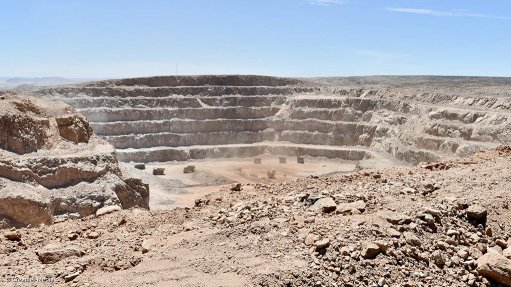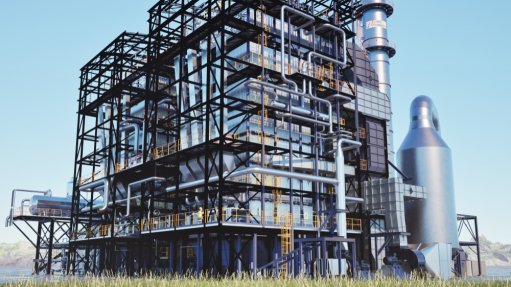Old govt buildings to be converted into homes for State employees

In this video, Human Settlements Minister Mmamoloko Kubayi discusses her department's efforts to provide housing.
Human Settlements Minister Mmamoloko Kubayi wants to convert old and unused government buildings into residential properties for government employees.
She said this was part of an effort to do away with apartheid spatial planning by bringing workers closer to their places of work or to existing economic opportunities.
As these buildings are primarily located in the hearts of major metropolitan areas, such as Johannesburg, Pretoria, Durban and Cape Town, a renewed focus is being placed on the rejuvenation of the inner cities to create more residential accommodation.
Speaking at the Inaugural Built Environment Indaba, in Midrand, on April 5, hosted by the Black Business Council in the Built Environment, Kubayi said the project, which is currently in the conceptualisation phase, will begin by providing residential space for government employees first.
“The majority of them, who are low-income earners, are sitting in backyards and in informal settlements. . . in a shack, having worked for government for 20 years. It’s unacceptable. This is the challenge,” she said.
She said that, currently the Department of Human Settlements (DHS) is working with the National Housing Finance Corporation to find ways to derisk and rehabilitate overindebted government employees so that they can qualify for housing subsidies.
“But once we do that, it means they're going to need the accommodation. Our interest is not for them to go now and buy in Soweto and travel to Pretoria. We would rather want them to stay within the inner city of Pretoria,” Kubayi said.
She explained that she was working with Public Works and Infrastructure Minister Sihle Zikalala to identify government-owned buildings within the inner cities of major metros with the intent of converting them into residential apartment blocks.
“Our first targets are Tshwane, Johannesburg, Cape Town and Durban. In Port Elizabeth, we've already done one through the Social Housing [programme] within the inner city, but there are quite a number that we want to increase. The focus will be in these densely populated areas,” she said.
She said the repurposing and refitting of the old government buildings would present an opportunity for built environment practitioners and construction companies.
“We don't intend to be the developers of these properties. It's a headache I don't want. My responsibility is to create a conducive environment. For built environment practitioners and companies, this is a space that you should be able to play,” Kubayi said.
She said that, with South Africa’s population increasing every year, the demand for housing will always be on the rise as more people look for shelter.
“What is of great interest for us as a sector is where, geographically, people want houses and what type of houses they want. Urbanisation has placed 60% of South Africans in major and secondary cities, which means that the demand for housing in urban centres has significantly increased.
“It therefore stands to reason that the infrastructure backlog that we find in housing is concentrated in urban centres, both in major and secondary cities,” Kubayi said.
In addition to access to economic opportunities and social amenities, Kubayi pointed out that urbanisation was just one of several important trends that have become dominant in determining the location and type of housing. These include climate change and innovations in alternative building technologies.
“Currently, I have a crisis on my hands. Shacks are burning every day. It's not sustainable to replace those shacks every day. We spend millions of rands that we shouldn't be spending in the manner that we are doing. It's an opportunity in terms of innovative building,” she said.
Kubayi said that, in the coming years, the DHS would start setting aside a certain percentage of the housing budget and demarcate certain areas of work particularly for the implementation of innovative building technologies.
“We've got to move with the times and ready ourselves for the market, and we've not been paying attention to the entirety of the value chain,” she said.
She said it was problematic that material suppliers were price setters for government, even though government can bulk buy and is a major contributor to the building and construction sector.
She said that, to get materials for a price that is reasonable, government must end up compromising on quality.
“As government, we've got to take responsibility,” she said, pointing to the fact that more could be done to develop black industrialists and other market players as suppliers to ensure a more robust value chain and greater competition in the market.
Article Enquiry
Email Article
Save Article
Feedback
To advertise email advertising@creamermedia.co.za or click here
Press Office
Announcements
What's On
Subscribe to improve your user experience...
Option 1 (equivalent of R125 a month):
Receive a weekly copy of Creamer Media's Engineering News & Mining Weekly magazine
(print copy for those in South Africa and e-magazine for those outside of South Africa)
Receive daily email newsletters
Access to full search results
Access archive of magazine back copies
Access to Projects in Progress
Access to ONE Research Report of your choice in PDF format
Option 2 (equivalent of R375 a month):
All benefits from Option 1
PLUS
Access to Creamer Media's Research Channel Africa for ALL Research Reports, in PDF format, on various industrial and mining sectors
including Electricity; Water; Energy Transition; Hydrogen; Roads, Rail and Ports; Coal; Gold; Platinum; Battery Metals; etc.
Already a subscriber?
Forgotten your password?
Receive weekly copy of Creamer Media's Engineering News & Mining Weekly magazine (print copy for those in South Africa and e-magazine for those outside of South Africa)
➕
Recieve daily email newsletters
➕
Access to full search results
➕
Access archive of magazine back copies
➕
Access to Projects in Progress
➕
Access to ONE Research Report of your choice in PDF format
RESEARCH CHANNEL AFRICA
R4500 (equivalent of R375 a month)
SUBSCRIBEAll benefits from Option 1
➕
Access to Creamer Media's Research Channel Africa for ALL Research Reports on various industrial and mining sectors, in PDF format, including on:
Electricity
➕
Water
➕
Energy Transition
➕
Hydrogen
➕
Roads, Rail and Ports
➕
Coal
➕
Gold
➕
Platinum
➕
Battery Metals
➕
etc.
Receive all benefits from Option 1 or Option 2 delivered to numerous people at your company
➕
Multiple User names and Passwords for simultaneous log-ins
➕
Intranet integration access to all in your organisation



















